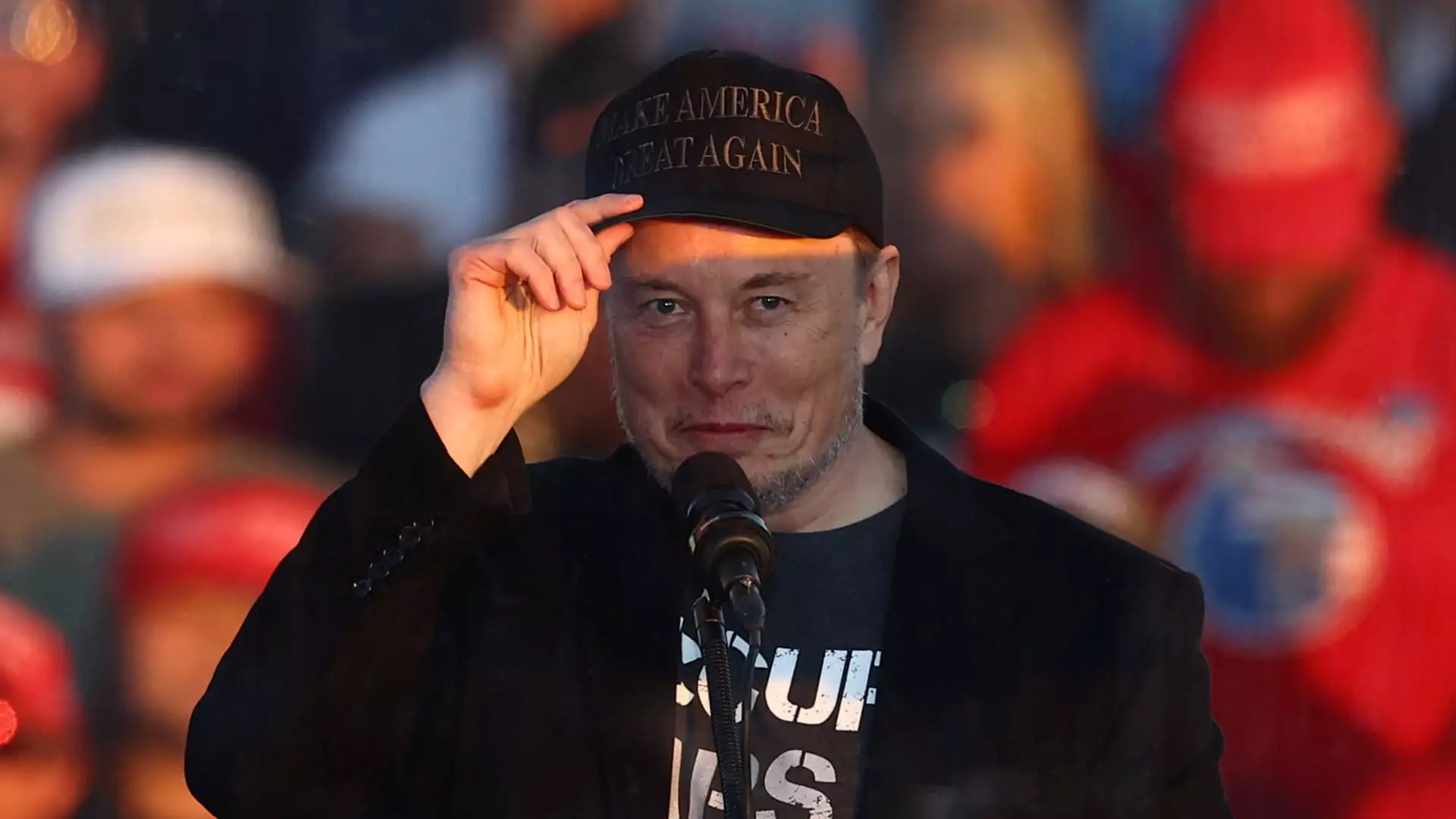Recent developments in the political landscape of Europe have underscored the significant influence that major tech entrepreneurs can wield over public discourse and election outcomes. One prominent figure in this dialogue is none other than Elon Musk, CEO of Tesla and SpaceX, whose endorsement of Germany’s far-right Alternative for Germany (AfD) party has stirred considerable controversy. By analyzing Musk’s actions and their implications, we gain insights into both the ever-blurring boundaries of politics and commerce, and the growing trend of wealthy individuals shaping democratic processes.
Elon Musk took to X (formerly Twitter) to express his support for the AfD, claiming, “Only the AfD can save Germany.” This statement was shared in conjunction with a post from Naomi Seibt, an influencer known for her controversial views on climate change and associations with far-right ideologies. Musk’s endorsement raises questions about the platforms that billionaires use to sensor public opinion and shape political outcomes. His massive following—over 200 million—gives considerable weight to his statements. This incident illustrates how digital platforms can amplify extreme political positions, often leading to polarized public reactions and potential misinterpretations that can affect democratic integrity.
While observers might dismiss Musk as an eccentric billionaire engaging in offhand commentary, the ramifications of his endorsement could have serious consequences for the political dynamics in Germany. The AfD’s ideologies—including its historical associations with nationalism and its skepticism toward immigration—pose significant counterpoints to the more progressive values of the current German government. As tensions rise, it is essential to scrutinize the motivation behind Musk’s actions and their alignment with the interests of his enterprises, particularly Tesla, which operates manufacturing facilities across Europe.
Following Musk’s endorsement, German Chancellor Olaf Scholz dismissed his claims as unfounded and misinformed. The situation becomes more complex given that the AfD is currently polling in second place ahead of the upcoming elections. The mainstream parties in Germany have historically refrained from forming coalitions with the AfD, but growing voter discontent indicates a shifting political landscape. As demonstrated by recent trends in the country, traditional parties are grappling with ideologically disparate electorates drawn to the far-right’s promises.
The AfD has aggressively campaigned against German involvement in the Ukraine conflict, echoing sentiments that align with Musk’s positions on international sanctions and military support. This shared ideology could encourage greater polarization between progressive movements and nationalist sentiments, further complicating Germany’s political climate. Observers of German politics must consider the implications of foreign influence, particularly from figures like Musk, who have the resources to shape public narratives globally.
Musk’s financial history suggests that his contributions to political campaigns—over $277 million to Republican causes in the U.S.—are not isolated incidents. The intersection of business interests with political support reveals a concerning trend where influential figures manipulate political allegiances for economic benefit. The growing acceptance of such influences highlights a potential threat to democratic principles, where political decisions could be swayed more by personal wealth than by collective public will.
Tesla’s own operations in Europe are facing challenges, including declining sales and opposition from parties like the AfD, which questions the net benefits of electric vehicles on local economies. The party’s trepidation regarding workers commuting from elsewhere fuels a narrative that targets Tesla as an outsider disrupting the existing industry. Thus, Musk’s endeavors abroad not only reflect his political interests but also reveal the fragile balance between local economies and corporate dominance.
Elon Musk’s recent forays into international politics emphasize the broader implications of technological influence in democratic societies. His relationships with various far-right leaders across Europe and South America, including support for leaders like Giorgia Meloni and Javier Milei, illustrate a pattern where a single individual’s voice can resonate across continents. This influence reveals the potential hazards of social media platforms that can inadvertently amplify extremist ideologies, leading to further polarization and discord.
As the world grapples with the intricacies of globalization, the melding of tech and political identities presents both opportunities and challenges. Citizens must remain vigilant in monitoring the impacts that immense wealth and power can exert on democratic processes, particularly when these influences may aim to reshape fundamental values of societies. The situation in Germany serves as a cautionary tale of how influential figures can engender significant political shifts with just a single tweet, signaling a need for continued scrutiny and accountability in the digital age.

